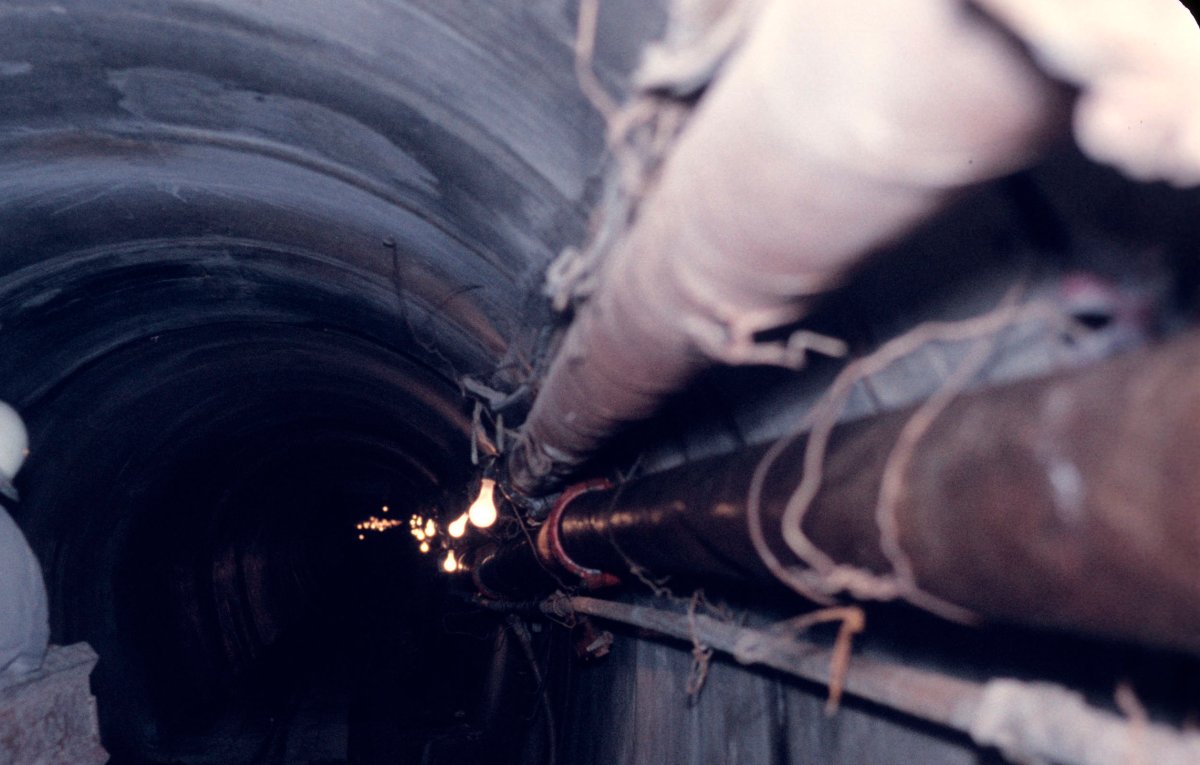The Metro Vancouver Regional District has been slapped with a near-record fine from WorkSafeBC over 2017 sewer work deemed dangerous.

A Metro Vancouver spokesperson confirmed that the $637,415.60 administrative penalty related to work on the Highbury Sewer, which carries more than 90 per cent of sewage from Vancouver and parts of Burnaby to the Iona Island sewage treatment plant.
The work was conducted at the Highbury Interceptor Diversion Chamber, at the mouth of Museuqam Creek, according to Metro Vancouver.
According to a WorkSafeBC summary of the penalty, Metro Vancouver crews were installing siphon gates inside a sewer line, which is considered a confined space.
However, it said crews failed to properly clear the work with WorkSafeBC and conducted the work without following safe procedures for confined space entry.

“The risks associated with harmful substances such as hydrogen sulfide gas (H2S) had not been adequately controlled,” reads the decision.
“The employer failed to conduct a hazard assessment that considered the conditions of the confined space, and to develop written procedures to eliminate or minimize those hazards. The employer also failed to develop, review, and update as required a confined space entry permit that identified the confined space and work activities, required precautions, and time of expiration.”
The decision says Metro Vancouver also failed to keep records of pre-entry tests, failed to control harmful substances in adjacent piping, and failed to ensure workers were properly trained on confined-space hazards.
“These were all high-risk violations,” reads the decision.
Metro Vancouver acknowledged the work was conducted without the proper approvals and said it was not appealing the penalty.

“Importantly, we have taken significant steps to address the issues identified in both the WorkSafeBC investigation and our own internal investigation along with an external consultant review/audit, completing the appropriate actions to bring us into compliance and ensure the safety of our employees,” Metro Vancouver spokesperson Don Bradley said in an email.
Accidents in confined spaces can quickly turn deadly.
In 2008, three people were killed and two left with brain damage at a Langley mushroom farm when they were overcome by noxious fumes inside a pump shed.
In 2003, four men died after being overcome by fumes while working below deck on a barge in New Westminster.
WorkSafeBC spokesperson Craig Fitzsimmons said the penalty assessed was the statutory maximum penalty, a figure that changes yearly in accordance with inflation.
“The primary purpose of an administrative penalty is to motivate the employer receiving the penalty — and other employers — to comply with occupational health and safety requirements and keep their workplaces safe,” he said.
The largest WorkSafeBC penalty on record, $662,102.48, was handed out to two different companies in 2019 — Peace River Hydro Partners in Fort St. John and Rio Tinto Alcan in Kitimat.
Another massive fine, $646,304.88, was handed out in 2019 to the Colony Farm Forensic Psychiatric Hospital in Port Coquitlam.
In 2018, TransLink was fined more than $600,000 when a SkyTrain worker was hurt in an electrical explosion.




Comments